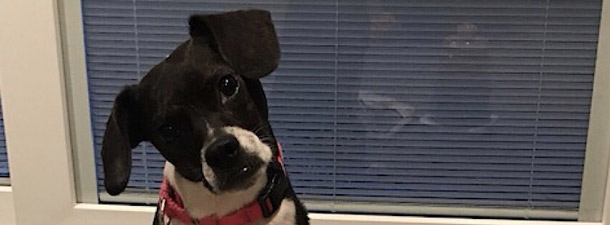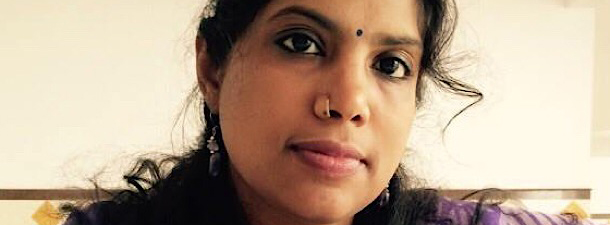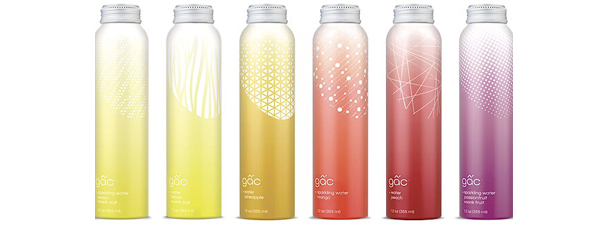Interview with theater director Tara Ahmadinejad
Tara Ahmadinejad is a director of theater and a teacher who was raised outside of Philadelphia but now lives and works in New York City. Tara is also the co-founder of a theater company called Piehole, established in 2008. The company is presently preparing for the debut of their new play titled “Ski End,” which will be performed at the New Ohio Theater from April 30 to May 19, 2017. Start time is 7:30pm for each show.
In “Ski End,” a group of urbanites, out of the city and at wits-end, gets stuck in an abandoned ski shop. Searching for clues to the shop’s pre-apocalyptic history in this flood-damaged relic, the travelers trek through the space’s past, present, and future, awakening a cosmic force. Imaginative, elastic, and built from a uniquely collaborative process, “Ski End” is an urgent 90-minute play in a world increasingly beset by environmental and economic dread. Tara recently discussed the play, the Piehole process, and her experiences as a theater-maker:
Meagan Meehan (MM) of Entertainment Vine: What prompted you to get into theater, especially as a director?
 Tara Ahmadinejad (TA): I think I was drawn to theater in my adolescence for the same reason a lot of people were — it gave me a way to take risks and express myself, as a shy, observer-type person. I also had a really intimidating and cool drama teacher in Middle School who said the F-word in class once, and showed me how theater can awaken my perception of reality. In college, I started to feel frustrated with acting, and the idea of “type casting,” assuming that in the real world, having a career would mean playing terrorist #3’s wife again and again. I was encouraged by teachers to write. Writing led me to re-think what I loved about theater, music, and art in general. The first show I directed was a puppet show, which allowed me to do something I’d never done before and to work with people who weren’t steeped in the theater scene, in a cross-disciplinary collaboration. That show, which I developed in college, is one that we re-mounted in NYC and in Philadelphia in 2008 as the inaugural Piehole show. I continue to direct theater because it offers me the opportunity to ask pressing questions about the world with ingenious collaborators. Meeting an audience allows us to broaden the perspectives in the conversation. Making theater allows me to stay awake to the world, while asking how we can improve it, through a kind of utopian practice of collaboration.
Tara Ahmadinejad (TA): I think I was drawn to theater in my adolescence for the same reason a lot of people were — it gave me a way to take risks and express myself, as a shy, observer-type person. I also had a really intimidating and cool drama teacher in Middle School who said the F-word in class once, and showed me how theater can awaken my perception of reality. In college, I started to feel frustrated with acting, and the idea of “type casting,” assuming that in the real world, having a career would mean playing terrorist #3’s wife again and again. I was encouraged by teachers to write. Writing led me to re-think what I loved about theater, music, and art in general. The first show I directed was a puppet show, which allowed me to do something I’d never done before and to work with people who weren’t steeped in the theater scene, in a cross-disciplinary collaboration. That show, which I developed in college, is one that we re-mounted in NYC and in Philadelphia in 2008 as the inaugural Piehole show. I continue to direct theater because it offers me the opportunity to ask pressing questions about the world with ingenious collaborators. Meeting an audience allows us to broaden the perspectives in the conversation. Making theater allows me to stay awake to the world, while asking how we can improve it, through a kind of utopian practice of collaboration.
MM: Why did you decide to establish your own theater company, Piehole, and how did you select that name?
TA: Piehole initially developed quite organically, or, accidentally, if you like. We didn’t set about starting a theater company. Some of us had past experiences collaborating with each other, and had intentions to continue collaborating, but we didn’t think about it as a company or a brand or anything like that. We just wanted to make a show together. We filled out an application to a festival, which asked for our company name, and filling it out in the middle of the night we were like, I don’t know, let’s just call it Piehole. The word came to us through a series of jokes and word-play whose origins I can’t totally recall, but I’ll just shout out Kathryn Wallem, who had a lot to do with it, but I can’t remember what exactly.
MM: Was it hard to establish your theater company?
TA: It depends on what you mean by “establish.” Was it hard to suddenly “have a theater company?” No. We just said, “we are a company.” (As I mentioned, it was all very unofficial). Initially what was hard (and what is still hard) was just the basic thing of figuring out how to make theater in NY. Has it been hard, over the past 9 years, to figure out what our company is through making/doing, to eventually articulate the mission statement, and change it regularly to contend with our evolving selves and collective, to learn from each process, and to continually question our role in the world, and why we spend so much time making theater together? Yes! That’s hard. It involves a lot of time for checking in, communicating fully, and reflecting on what we have done, what we’re doing, what we’re going to do, why and how. But doing that hard stuff makes it much easier emotionally and psychologically to do other kinds of hard stuff, like carry oversized props on the train, paint a floor at 2am, and write 1000000 emails a day.
MM: How many plays has Piehole produced and how do you go about finding venues? Also, what style/genre of play do you most seek and how do you acquire your scripts?
 TA: We have produced a bunch of projects over the past 9 years. Some short, installation-y type events, some longer, theater-y type events (see the Piehole website). Early on we’d find venues mostly by seeing who was doing open submission applications. In some cases, we have contacted venues, and found out whether they’d be open to partnering with us or presenting our work. In the current case for “Ski End” the New Ohio reached out to us for their Archive residency with IRT, so we didn’t do the seeking, which has been a BLESSING. As a company, we don’t typically look for scripts, but we do seek source materials (which are sometimes scripts). At various points we’ve brought in source materials, often texts but not always, to share with each other. Sometimes there’s a collective spark around a certain source, or there’s a special vibration between a couple of sources that we get excited about and want to keep delving into.
TA: We have produced a bunch of projects over the past 9 years. Some short, installation-y type events, some longer, theater-y type events (see the Piehole website). Early on we’d find venues mostly by seeing who was doing open submission applications. In some cases, we have contacted venues, and found out whether they’d be open to partnering with us or presenting our work. In the current case for “Ski End” the New Ohio reached out to us for their Archive residency with IRT, so we didn’t do the seeking, which has been a BLESSING. As a company, we don’t typically look for scripts, but we do seek source materials (which are sometimes scripts). At various points we’ve brought in source materials, often texts but not always, to share with each other. Sometimes there’s a collective spark around a certain source, or there’s a special vibration between a couple of sources that we get excited about and want to keep delving into.
Outside of Piehole, I don’t have specific genres or styles I look for in the plays I want to direct. I try not to “look for” anything in a play, except for the play itself. I think this helps me stay open to each work on its own terms. I guess in general I’m drawn to plays that can feel really small and really large at the same time, that take advantage of the apparatus of theater, that make the audience necessary, and that ask more questions than give answers. Lately especially I’ve been drawn to plays that manage to convincingly inject hope into the world without feeling like an advertisement for soap or something.
MM: “Ski End” sounds really interesting and unusual. How did you get the idea for this play and why, of all places, did you decide to base it in a ski shop?
TA: The source material for this piece is an abandoned ski shop we visited in Vermont, initially without a plan to make a show inspired by it. This is a good example of how happenstance can influence the way we work as a collective. We were inspired by this space’s half-walls (the bottom halves were ripped out because of the flood damage from Hurricane Irene). At first, we were drawn to it from a formal perspective, seeing the bottom halves of people behind this half wall, and what this might suggest about their invisible top halves. We found weird evidence in the space of its past ski shop state, and its current and potential use — empty beer cans and a make-shift skate ramp suggested that teens hang out in this space. And for some reason there were dead birds in there, which seemed a general omen of doom. We continued to visit the space and learned more about its history: its location in a valley between two ski mountains (prone to flooding), and the ways that the recession and climate change led to the space’s current dismal state. We began to read the abandoned ski shop as this apocalyptic entity, that layers the past (with signs of the shop’s former life and demise), the present (as the hangout spot for local teens), and a murky future (the space has been in this post-disaster state since 2011). Jeff happened to be reading “Frankenstein” at the time, which led us to explore Romantic texts in relation to the space. Reading Romantic criticism and “Frankenstein” helped us connect this atmosphere with the notion of The Sublime, a feeling of standing on a precipice and encountering Nature, in all of its awe-inspiring beauty, and the terror of your own limits in the face of a force larger than yourself. Through this circuitous path, “Ski End” is about this ski shop as a vessel for thinking about all of time, and how we as humans deal with and anticipate catastrophe. The title derives from the way locals refer to the space, because it is on one end of an old mill building, the end with the ski shop, the ski end.
MM: What is your absolute favorite thing about this play and what do you hope audiences take away from it?
 TA: I love the way the play deals with layers of fiction and time: it dives deep into almost obscure layers of fiction only to jolt us back into our own present-day reality. I also love the songs! Deepali Gupta has written these incredible, jewel-like harmonies, with lyrics drawing from various Romantic texts and imagery. I hope the audience experiences the cosmology of the play and the world in a way that allows them to contend with the terrifying forces of the Sublime all around us.
TA: I love the way the play deals with layers of fiction and time: it dives deep into almost obscure layers of fiction only to jolt us back into our own present-day reality. I also love the songs! Deepali Gupta has written these incredible, jewel-like harmonies, with lyrics drawing from various Romantic texts and imagery. I hope the audience experiences the cosmology of the play and the world in a way that allows them to contend with the terrifying forces of the Sublime all around us.
MM: Where do you hope to go from here in your career and what have been some highlights of working in theater?
TA: This past year, I’ve been working with both undergraduates and teenagers a lot, and I find it really inspiring and illuminating to teach theater to young people, so one of my career hopes is to teach more. As far as directing projects, I’m hoping to find a good balance between working on plays with playwrights and Piehole projects, the latter of which I think might veer outside of the theater in the coming year or two.
MM: What forthcoming projects are you currently anticipating?
TA: Outside of Piehole, I’m excited to be working with playwright Chana Porter on her play “Leap and the Net Will Appear” which we’re hoping to do in the next year or two. I’m also in very early stages of writing something myself, which is quite a change of pace, so just trying to figure out the process of that right now. With Piehole, we haven’t set our next project yet, but before we dove back into “Ski End” we had talked about the next project not being in a theater. We did a couple of small projects last year such as an installation at LMCC Workspace Open Studios, and a 24-hour live-streamed Telethon that we may want to build upon, or just move adjacent to. It’s too soon to say for sure. Maybe we’ll just return to this “Mister Ed” project we never finished, which will become a lifelong pursuit if we’re not careful!
* * * * *
To learn more, visit the New Ohio Theatre website and the official website of Pieholed.


